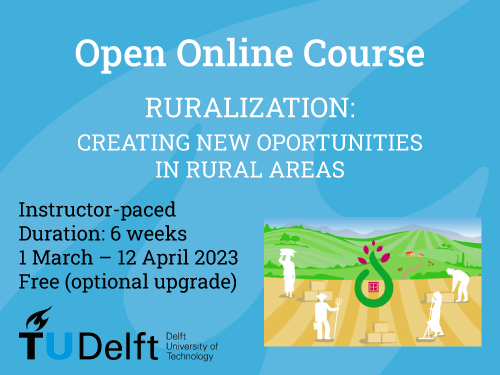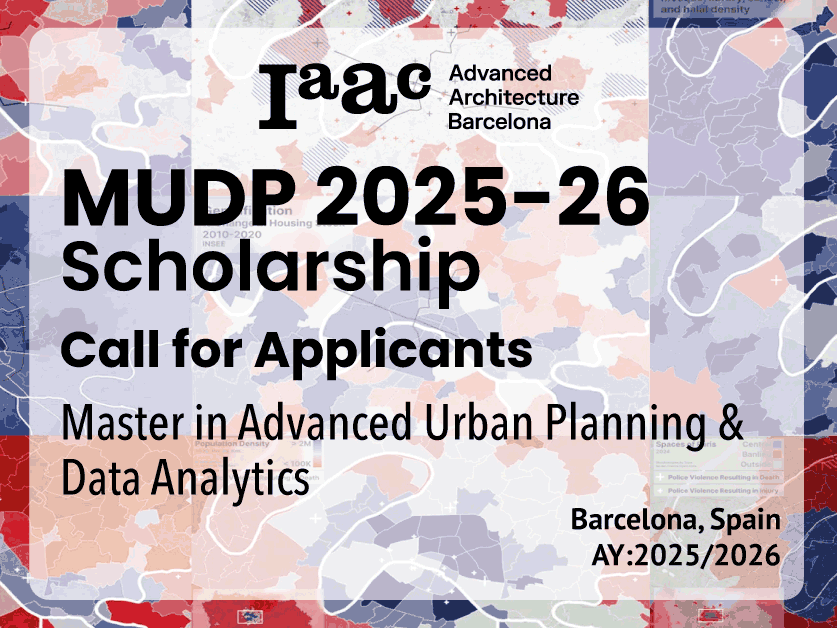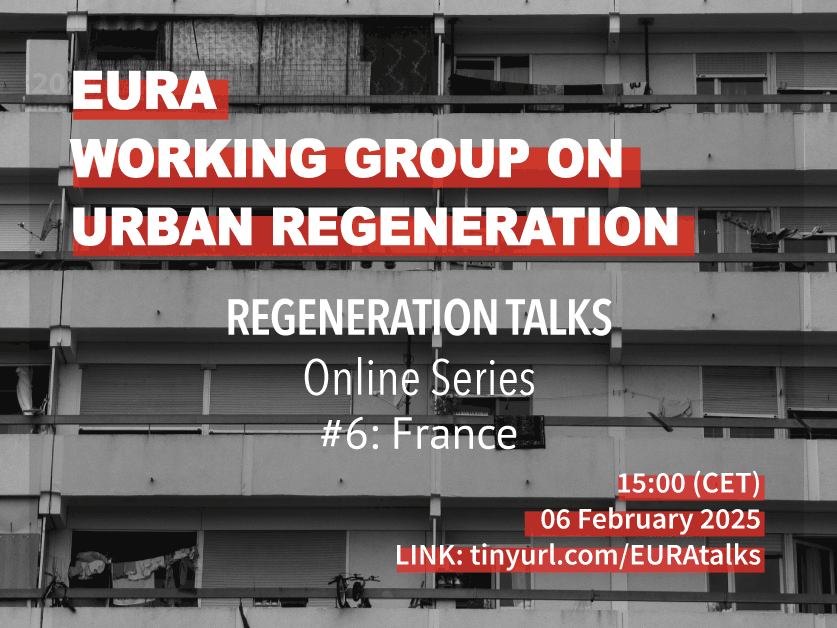
A Glance at the EURA Presidents
27/01/2023
Cities Forum 2023 – Upcoming
08/02/2023OPEN ONLINE COURSE
Ruralization: Creating New Opportunities in Rural Areas
Analyze trends and dynamics of rural regions and learn to formulate ideas, strategies and actions to boost rural development, with a particular focus on younger generations.
Dates: 1 March - 12 April 2023
Location: Online (edX)
Organised by: Delft University of Technology, The Netherlands
Duration: 6 weeks (4–5 hours per week)
Registration cost: Free (Optional upgrade available)

Overview:
Many rural areas around the world face a critical population and economic decline and struggle to attract younger generations to reverse this trend. An ageing population, youth out-migration, lack of employment opportunities, shift to large-scale agriculture and land acquisition by investment companies, are some of the challenges faced in rural areas.
Life in villages has also become ever more challenging: the economic viability of shops and services is under pressure, healthcare facilities are difficult to organize, less support for community work is available and governmental investments decrease. To break this vicious circle of decline, which not only affects people’s lives but also the spatial quality of rural areas and their sustainable development, we need innovative initiatives that will have a broad impact.
This course provides ideas and insights that help to offer opportunities to young generations in rural areas. Such opportunities are based on international trends that influence the future of how we organize our lives and society. You will learn how these trends can be relevant for rural development.
Ruralization opportunities may include new businesses, sustainable farming techniques or, for example, shortening the food production chain so that areas benefit from the added value. These opportunities can be facilitated by innovative approaches to giving people access to land. We will explain different possibilities that have proven successful in different contexts and we will present several inspiring examples.
Each rural region is different and therefore needs a specific, tailored approach. After taking this course, you will be able to formulate region-specific strategies to enhance rural development.
Target:
- (Young) professionals aiming to work on rural development policy and strategy design.
- People aiming to make a difference in the future of rural areas, for example in the field of rural innovation and local economy.
- Students aiming to strengthen their knowledge to become better equipped professionals in this field.
The instructors:

Willem Korthals Altes
TU Delft (NL)

Tuomas Kuhmonen
University of Turku (FI)

Aisling Murtagh
University of Galway (IR)






